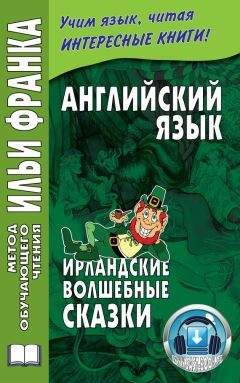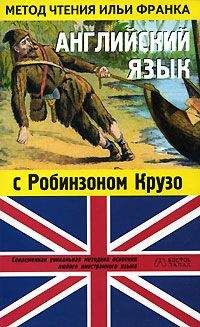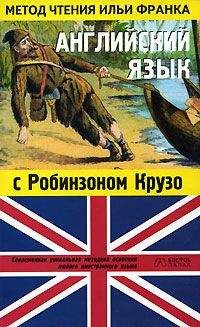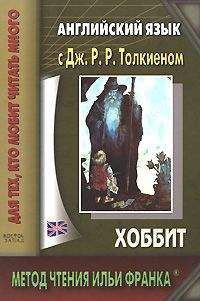Ознакомительная версия.
The twelve made themselves men, turned over the barrel, and spilled the wheat on the floor. Then in a twinkling they were twelve cocks strutting around.
They fell to and picked away at the wheat (они набросились на пшеницу и стали ее клевать; to fall /fell, fallen/ – падать; to fall to – браться, приниматься за /что-л./, начинать делать /что-л./; to pick – клевать) to know which one would find the fisherman’s son (чтобы узнать, кто найдет сына рыбака). Soon one dropped on one side (вскоре один упал в одну сторону), and a second on the opposite side (а второй напротив: «в противоположную сторону»), until all twelve were lying drunk from the wheat (/и так они падали до тех пор,/ пока все двенадцать не лежали пьяными, /объевшись/ пшеницей; to lie – лежать; быть, сохраняться, оставаться /в каком-л. положении или состоянии/).
They fell to and picked away at the wheat to know which one would find the fisherman’s son. Soon one dropped on one side, and a second on the opposite side, until all twelve were lying drunk from the wheat.
Then the old fisherman’s son made a fox of himself (тогда сын старого рыбака превратился в лиса: «сделал лиса из себя самого»), and the first cock he came to was the old Gruagach na g-cleasan himself (и первым же петухом, к которому он подошел, оказался сам старый Хитрый Груагах). He took the head off the Gruagach with one bite (одним укусом он откусил голову Груагаху: «он снял голову с Груагаха одним укусом»; to take – брать; to take smth., smb. off smth., smb. – снимать что-л. с чего-л.), and the heads off the eleven brothers with eleven other bites (а головы /остальных/ одиннадцати братьев /еще/ одиннадцатью укусами).
Then the old fisherman’s son made a fox of himself, and the first cock he came to was the old Gruagach na g-cleasan himself. He took the head off the Gruagach with one bite, and the heads off the eleven brothers with eleven other bites.
When the twelve were dead (когда /все/ двенадцать были мертвы), the old fisherman’s son made himself the finest-looking man in Erin (сын старого рыбака превратился в самого красивого мужчину в Ирландии; fine – ясный, хороший /о погоде/; прекрасный, красивый, замечательный), and began to give music and sport to the king (и начал музицировать и /показывать/ забавы королю; to give – давать; sport – забава, развлечение, потеха); and he entertained him five times better (и он развлекал его в пять раз лучше) than had the Gruagach and his eleven sons (чем /развлекал/ Груагах и его одиннадцать сыновей).
When the twelve were dead, the old fisherman’s son made himself the finest-looking man in Erin, and began to give music and sport to the king; and he entertained him five times better than had the Gruagach and his eleven sons.
Then the king’s daughter fell in love with him (тогда королевская дочь влюбилась в него; to fall in love – влюбляться), and she set her mind on him to that degree (и она привязалась к нему до такой степени; to set /set/ – ставить, помещать; mind – ум, разум; мысли, думы, стремления; to set one’s mind on smth. – очень хотеть чего-л., сосредоточить все свои помыслы на чем-л.; degree – степень, уровень) that there was no life for her without him (что для нее не было никакой жизни без него).
When the king saw the straits (когда король увидел то трудное положение; strait – затруднительное положение, стесненные обстоятельства, нужда) that his daughter was in (в котором находилась его дочь), he ordered the marriage without delay (он распорядился /сыграть/ свадьбу без отлагательства; delay – задержка, приостановка; замедление, промедление).
Then the king’s daughter fell in love with him, and she set her mind on him to that degree that there was no life for her without him.
When the king saw the straits that his daughter was in, he ordered the marriage without delay.
The wedding lasted for nine days and nine nights (свадьба длилась девять дней и девять ночей), and the ninth night was the best of all (и девятая ночь была лучше всех остальных).
When the wedding was over (когда свадьба закончилась), the king felt he was losing his strength (король почувствовал, что слабеет: «теряет свою силу»; to feel /felt/ – чувствовать, ощущать), so he took the crown off his own head (поэтому он снял корону со своей /собственной/ головы), and put it on the head of the old fisherman’s son (и возложил ее на голову сына старого рыбака), and made him king of Erin in place of himself (и сделал его королем Ирландии вместо себя).
The wedding lasted for nine days and nine nights, and the ninth night was the best of all.
When the wedding was over, the king felt he was losing his strength, so he took the crown off his own head, and put it on the head of the old fisherman’s son, and made him king of Erin in place of himself.
The young couple were the luck (юная пара была счастьем; luck – /та или иная/ судьба, случай; счастье, удача, успех, везение), and we the stepping-stones (а мы ступеньками /к счастью/; step – шаг; ступень; to step – ступать, делать шаг; stone – камень; stepping-stone – камень для перехода /через ручей, грязь и т. п./; средство для достижения цели, улучшения положения и т. п.). The presents we got at the marriage (подарками, которые мы получили на той свадьбе) were stockings of buttermilk (были чулки из пахты) and shoes of paper (и башмаки из бумаги), and these were worn to the soles of our feet (и они сносились до дыр: «и эти /башмаки/ были сношены до подошв наших ног»; to wear /wore, worn/ – носить /одежду и т. п./; изнашивать, протирать) when we got home from the wedding (когда мы вернулись домой с той свадьбы; to get to a place – добраться до какого-л. места).
The young couple were the luck, and we the stepping-stones. The presents we got at the marriage were stockings of buttermilk and shoes of paper, and these were worn to the soles of our feet when we got home from the wedding.
Tale – рассказ, повесть; fairy – волшебный, сказочный; fairy tale – (волшебная) сказка.
Erin – /поэт./ Ирландия.
Loch – /шотл./ озеро.
Десмонд – средневековое (118–1596) королевство на юго-западном побережье Ирландии.
Tir na n-Og (Тир на Ног) – в кельтской мифологии «остров юных», страна вечной молодости.
Lonesome – одинокий, томящийся одиночеством; малолюдный, пустынный, уединенный.
Grúagach – волосатый, лохматый от слова grúag (волосы). Персонаж ирландской мифологии.
Trick – обман, хитрость.
Ознакомительная версия.





